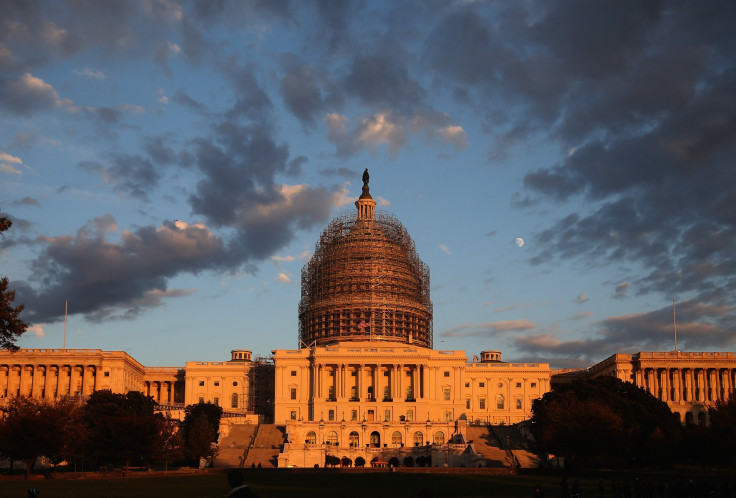What Ancient History Has To Say About Near-Future Doom

The Roman Republic was decaying long before Julius Caesar marched on the city in 49 B.C. and toppled it for good. One of the pivotal moments in that decay came just three decades earlier, during the brief dictatorship of Lucius Cornelius Sulla Felix.
Comparisons between 21st century America and the late republic are a bit cliché, and frequently overwrought. But there's one choice Sulla made that has a direct parallel in modern politics.
Although Sulla ruled as dictator for just one year before retiring into private life, he packed a lot into those months. Not only did he butcher thousands of potential rivals, he also instituted sweeping reforms, some of which contributed to the republic's eventual demise. For example, Sulla doubled the size of the Senate, from about 300 men to roughly 600. As Cambridge classics scholar Mary Beard detailed in her recent book "SPQR," this had the side effect of burdening Rome's political system with a bigger elite than it could possibly handle.
Even as the number of politicians and political aspirants exploded under Sulla's rule, the number of top positions they could aspire to remained exactly the same; there would still be just two consuls elected per year. In the decades that followed, competition for political advancement became increasingly desperate and savage — until a series of grisly civil wars ended with the collapse of the republic, resolving the mismatch between supply and demand.
University of Connecticut professor Peter Turchin has described that mismatch as a problem of "elite overproduction," the process by which a growing number of elites got thrown into competition over a proportionally shrinking number of trophies. He says that phenomenon didn't just help bring down the Roman Republic; it also contributed to the onset of the American Civil War, along with countless other historical calamities.
Now elite overproduction is happening again in the modern United States, says Turchin.
Turchin is a pioneer in the field of cliodynamics, a discipline that aims to trace broad historical trends through statistical modeling. His work has led publications like Wired to describe him as a real-life Hari Seldon, the "psychohistorian" who uses mathematical equations to predict the collapse of civilization over millennia in Isaac Asimov's "Foundation" science fiction novels. Turchin's own model doesn't necessarily foretell the end of American democracy, but he does expect some kind of major political crisis to occur within the next five years.
"Everything is developing, unfortunately, according to the theory," Turchin told International Business Times.
For proof, look no further than the 2016 presidential campaign. As America has become more unequal over the last few decades, the top echelon of politically active billionaires and multimillionaires has grown. Classic elite overproduction.
"They basically aim to transform their wealth into political power," said Turchin. "Some of them run for office themselves, like Donald Trump or Michael Bloomberg. Others, like the Koch brothers, basically run candidates."
Michael Bloomberg, a financial services and media billionaire, is the most recent former mayor of New York. The Koch brothers are Charles and David Koch, scions of a wealthy oil family who have funneled hundreds of millions of dollars into conservative and libertarian causes. But the archetypal byproduct of elite overproduction, in Turchin's mind, is Republican presidential candidate Donald Trump.
Trump has long been a fixture of New York's economic and social elite as a real estate and hotel tycoon, but he had never sought political office before this campaign cycle. According to the New York Times, he didn't even play an especially prominent behind-the-scenes role in New York politics for most of his career. Yet over the past year, he has been able to parlay his wealth and media savvy into a front-running presidential campaign.
"He fits like a glove to the predictions of the theory," said Turchin. "He is an elite aspirant."
Trump also has implemented what Turchin described as a winning strategy for other "frustrated elite aspirants" throughout history: mass mobilization of economically struggling people across the country.
In Turchin's cliodynamics model, "absolute immiseration" is the flip side to elite overproduction. As nations become more unequal, it's not just the upper class that gets bigger. More and more people also fall to the bottom rungs of the economic ladder, where they become angry and disaffected with the political process. Frustrated elite aspirants are well placed to harness that anger.

One key takeaway of Turchin's model is that Trump is a product of broader social and economic forces, not their cause. Even if he loses the Republican nomination, it is extremely likely that both absolute immiseration and elite overproduction will continue to worsen, which in turn will give rise to more mass movements led by frustrated elites. In fact, Turchin believes there is already another candidate who fits that mold in the Democratic race.
"The candidacy of Bernie Sanders is another indication of intra-elite splits," he told IBT.
Turchin prefers Sanders to Trump — he said the former "is probably motivated in more pro-social ways" — but that doesn't change his assessment that both their candidacies augur a crackup of the American political elite.
"The last time we had such splits within the major parties was in the 1850s, and of course you know what happened 10 years later," said Turchin.
But that doesn't mean he thinks another civil war is inevitable, or even likely.
"I have greater hopes that this time around we will avoid the worst, because we have a much better understanding of what's going on," he said.
And there are positive examples to point to, where other nations have relieved the pressure of immiseration and elite overproduction before matters came to a head. Turchin cited the example of Victorian Britain, which successfully avoided upheaval in the 19th century even as revolution convulsed many other European states.
America in the early 20th century is another success story, said Turchin. Thanks to a combination of political reforms and expanded social insurance, it was able to navigate the transition from the Gilded Age to the relatively egalitarian post-New Deal era — although not before suffering through the Great Depression.
The trick is for governments to anticipate the danger, then figure out ways to alleviate the twin pressures of immiseration and a swollen elite.
"It's much less predictable what happens when crisis hits," said Turchin. "Which is why I don't know what will happen in the 2020s."
© Copyright IBTimes 2024. All rights reserved.






















